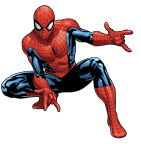Mojo Heroes And Antiheroes
There are both heroes and antiheroes among people with high mojo. There is no law that says a person with high mojo has to be a nice person. Sometimes they are, sometimes they aren’t. Let’s define anti-hero. Webster says an anti-hero is “a protagonist or notable figure who is conspicuously lacking in heroic qualities”. Examples of heroic qualities are strength, ability, achievement, courage, and nobility. The number of anti-heroes compared to heroes is greater in fiction than in real life. It is just more fun to write about or play the more complex characters typified by anti-heroes. It exploits the talents of the actors better. It also seems as if there are more anti-heroes today than in prior years. But all of the people I am about to mention had high mojo, whether hero or anti-hero.In an earlier post, I described the top 10 American people with high mojo. They were George Washington, Abraham Lincoln, Thomas Jefferson, Ronald Reagan, Benjamin Franklin, Teddy Roosevelt, Franklin D. Roosevelt, Martin Luther King, Jr., George S. Patton, and Neil Armstrong. Some of them were ”nice”. Some weren’t. Washington, Lincoln, The Roosevelts, and Reagan were generally liked by everyone. Armstrong had been an Eagle Scout, and lived up to their expectations. Thomas Jefferson, although liked, was tarred with the brush of slave ownership. Franklin was thought to be a drinker and womanizer. King was thought to be a womanizer too. Patton was known for uncaringly slapping a soldier. He had a colorful, hard-driving image and many critics. If anyone on this list was an antihero, it was Patton. Since most of these men lived long ago, they are mostly heroes.
In another post, I described some things that have been improved by a person who had mojo. These people, excluding duplication, are Magic Johnson, Larry Bird and Michael Jordan in basketball, the Wright Brothers in aviation, Albert Einstein in Physics, and Steve Jobs in telephones. Bird, Jordan, and Jobs were definitely anti-heroes. They were all difficult people, hard to work with, demanding, and not particularly sensitive to other’s needs.
In fiction, we find even more anti-heroes. Going way back we find Homer’s Thersites through the Greek’s Ajax, Antigone, Oedipus Rex, and Philoctetes to Don Quixote. Others include Huckleberry Finn and the characters in many European existentialist works, Hamlet, Lady Macbeth, Othello, Raskolnikov in Crime and Punishment, James Bond, and Scarlett O’Hara. But where we really see more of them is in movies. Almost any Clint Eastwood character is an anti-hero, whether it is in spaghetti westerns, the Dirty Harry movies, or Walt Kowalski in Gran Torino. Also, look at Michael Corleone, Travis Bickel in Taxi Driver, Rambo, and many more. Anti-heroes are also featured in television shows like Bosch, Mad Men, Breaking Bad, and House of Cards
In another post, I described some things that have been improved by a person who had mojo. These people, excluding duplication, are Magic Johnson, Larry Bird and Michael Jordan in basketball, the Wright Brothers in aviation, Albert Einstein in Physics, and Steve Jobs in telephones. Bird, Jordan, and Jobs were definitely anti-heroes. They were all difficult people, hard to work with, demanding, and not particularly sensitive to other’s needs.
Regardless of where you find them, these people were known for their significant contributions. These great men and women may have had character flaws, but their greatness is not questioned. Sometimes you just need a person to fix a problem. If the problem is serious enough, you will overlook the fixer’s flaws. However, note that in most cases, if the problem goes away, the anti-hero is no longer needed and probably shunned by most. There won’t even be gratitude, let alone forgiveness.







Interesting perspective on the definition of "hero." I think of heroism being much more about HOW things are accomplished in the face of opposition rather than WHAT big things are accomplished. In that light, an attribute like courage or bravery is paramount, certainly, but others like conviction, determination, honesty, moral integrity, and an ability to inspire others are more important than strength, achievement or nobility ... although I guess it depends on how you define strength or nobility. Achievement is not so a characteristic as a metric. A person who achieves great things but faces little opposition in achieving them is not a hero in my mind ... talented perhaps, or lucky maybe.
ReplyDelete